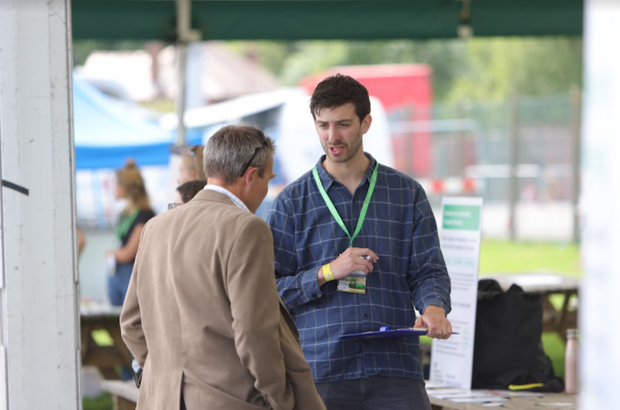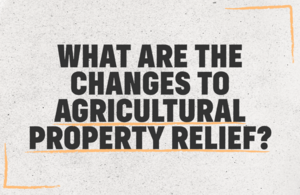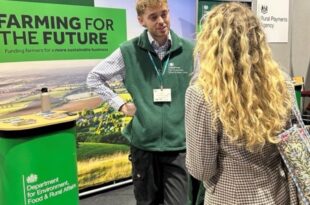
The Future Farming Advice team is responsible for making sure that people have the advice they need to support them through the agricultural transition and beyond.
In this post, I’ll give you an overview of our work. I’ll share some of our findings and explain what we’re doing next.
And because we believe co-design is the way to ensure our advice leads to better outcomes, I’ll share details of how you can get involved at the end of this post.
Before I get started, I want to explain what we mean by advice and guidance and how they differ.
Advice
Advice, in the context of the Future Farming and Countryside Programme, is tailored information shared between an adviser and a farmer or other land manager. For example, it might relate to a specific holding or situation. The relationship between the parties can mean that over time, a high-degree of trust is established. The adviser can be from a delivery partner (Natural England or Forestry Commission for example) or from a commercial organisation.
Advice is based on subject matter expertise.
In addition to face-to-face discussions with advisers, it can be delivered through a variety of different means, such as online forums, on farm discussions, through technology, by phone or email.
Guidance
Guidance, on the other hand, is published information. It is designed to help an individual complete a task.
The Future Farming and Countryside Programme primarily uses GOV.UK for guidance. People can navigate to GOV.UK themselves and they can sign up for alerts when new guidance is published too. The guidance on GOV.UK is also promoted through the press, networks, events, social media, and here on the blog.
Advice and guidance are part of the same service which ensures all our users have the information they need for their circumstances, at the right time, in a way that works for them.
What the team has been working on
Advice and guidance are not something we’ve only just started looking at. Defra has been thinking and planning over the past few years. The work will certainly continue as more schemes and services become available.
We have worked with people from across the industry to really understand what good advice looks like and how we can make sure our offer matches that. For example:
- a number of tests and trials have specifically looked at advice, finding out from farmers what works and what doesn’t and where their greatest needs tend to lie.
- the environmental land management team are working with existing providers to explore the potential need for accreditation, training and certification of advisers.
- the Animal Health and Welfare team is working with vets who have first-hand advice-giving experience
- the Future Farming Resilience Fund offers business advice and support services through the early part of the Transition period, up to late 2024 for farmers and land managers impacted by the removal of Direct Payments.
- we’re learning from previous co-design workshops and through the Farming Advice Service. We’re using this and other evidence to explore how advice, including through the inspection process, can help farmers comply with regulation and so reduce harm to environment and animal health welfare.
- the Advice team have been working with industry leaders in knowledge exchange to understand how we can join this together to make a more coherent service.
We’ve pulled everything we’ve learned together into one place and we’ve formed a community of specialists who review the evidence and work through problems as a team.
This will help us to reach a common understanding of the advice situation and ensure that we’re all aligned when it comes to the interpretation of the evidence.
What the evidence is telling us
One theme to emerge from the evidence is that advice works best when it comes from a source the individual trusts. For example, a farmer is more likely to trust advice if it comes from an adviser who has knowledge of the local area and understands the farmer’s business and their objectives.
It's also clear that advice from peers can be just as important as advice from a professional source. We are working with farmers and land managers to understand how we might support this important activity.
People want to be clear what they need to do, not just to meet the terms of the scheme, but also their legal responsibilities. This is something that good content design can achieve.
Another theme we are finding is that training and exchanging knowledge form important parts of advice-giving. This can be achieved through facilitated sessions, online systems, peer-to-peer, webinars, in person on a farm as well as through formal courses and accreditation.
COVID-19 has prompted changes in the ways that people interact with advisers. We have trialled engaging with people through webinars. Feedback suggests that this works for many people. We are working with advisers, farmers, and land managers to understand what works best online and when face-to-face advice is needed or preferable.
A big theme is the need for different channels of advice to reach a wider audience. The information should be consistent, and the delivery should be positive and trusted with specific knowledge of the local area and the persons business. Balancing these requirements is vital for a successful advice service.
What the team is doing next
We want to build a comprehensive picture of what works well now, where there are problems, what needs to improve and where advice could provide a solution. We are looking at what advice should be provided by Defra organisations, and what should be provided through the market.
In particular, we want to find out the problems Defra colleagues, farmers, land managers and advisers have with advice. In addition to speaking to people at agricultural shows, we will do this by interviewing people and looking at existing user research.
Equipped with a solid understanding, we can then start to look at ways to solve these problems. Co-design workshops will help us understand how we could meet these user needs.
Get involved
We will be holding workshops on 23, 24 and 26 August and interviews throughout the next few weeks to help us answer our questions and to start designing the options for the future. If you are a farmer, forester or grower and would like to get involved in our research please contact DEFRA-FFCP-Advice@defra.gov.uk. To find out more please leave a comment below and we will get back to you.
Get involved with co-design activity in the rest of the programme.





 The
The 
4 comments
Comment by Chris posted on
You've said 'What the evidence is telling us' about advice, but not anything about what the evidence says about guidance. What does the research say about guidance? Given you've opened the blog by making the distinction between the two, they're presumably being researched individually in some way.
Comment by Jane Green posted on
Hi Chris, You are indeed correct. The Content Team is working on improving our GOV.UK guidance as we speak. One of the interesting points we are considering is that advice and guidance form part of the same service to support our customers, so whilst we are looking at them separately we know that this isn’t necessarily how users see or use them. Our aim is that the future service reflects what our users need, part of the current work we are doing is to understand what these needs are.
Best wishes, Jane.
Comment by Chris posted on
So if users make no distinction between advice and guidance, why does GOV.UK? Honest question and not a criticism. We all use websites and don't care what their internal content types might be. Maybe advice v guidance is an unnecessary split. Maybe there's a crucial internal reason for them to be separate that the public don't see?
Comment by Jane Green posted on
That is a very good question, there are some reasons for us to manage them separately internally (as one person can’t do everything for example) however you are right that the split may well be arbitrary in terms of what our users (the people who use gov.uk for example) need. This is one of the things we are looking at as part of the work we have ongoing at the moment – what do users need and how do we make that one complete service. I notice you're from Defra, so perhaps you might be interested in attending a show and tell? I can email you separately about this